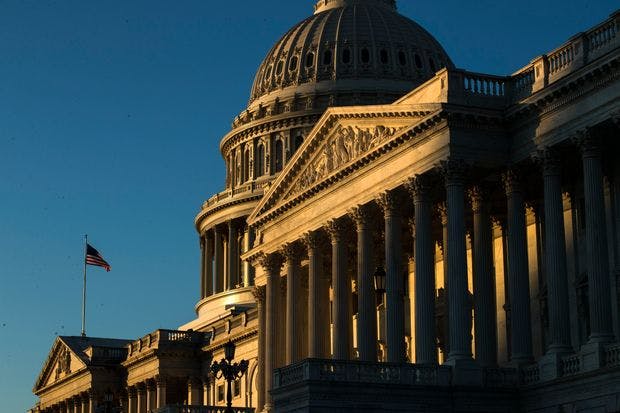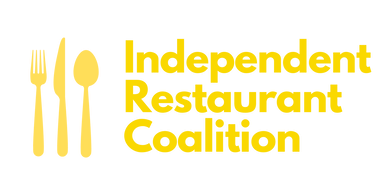August 7 — Senate Attempt to Add $48 Billion to Restaurant Revitalization Fund Praised by Independent Restaurants and Bars

FOR IMMEDIATE RELEASE
August 7, 2021
CONTACT:
Jeff Solnet
jeff@precisionstrategies.com
Senate Attempt to Add $48 Billion to Restaurant Revitalization Fund Praised by Independent Restaurants and Bars
Independent Restaurants: “Congress and the White House must prioritize relief for restaurants immediately.”
WASHINGTON D.C. – Today, Senator Ben Cardin (D-MD) moved by unanimous consent to add $48 billion to the Restaurant Revitalization Fund (RRF). Senator Cardin’s proposal invoked fierce speeches on the Senate floor from Majority Leader Chuck Schumer (D-NY) and Senator Dick Durbin (D-IL), indicating that support for replenishing the RRF is continuing to gain steam.
“The independent restaurant and bar community applauds Majority Leader Schumer and Sen. Cardin for their efforts to refill the restaurant revitalization fund,” said Erika Polmar, Executive Director of the Independent Restaurant Coalition. “These small businesses have already suffered 17 months of losses and are now desperate for help as they face rising food costs and a new wave of consumer hesitancy. The Restaurant Revitalization Fund gave over one hundred thousand businesses and the millions of people they employ a fair shot at survival. That initial program was, in Sen. Schumer’s words, a down payment for a much needed, larger investment. Neighborhood restaurants and bars on the brink of closure have reason to hope today — Congress and the White House must prioritize relief for restaurants immediately to prevent long lasting damage to the industry and millions of people it employs.”
This comes at a crucial time for neighborhood restaurants and bars. Just last week, the CDC recommended vaccinated Americans wear masks indoors in certain parts of the country due to the surging Delta variant. Now, localities around the country are contemplating vaccination mandates for diners and staff. New York City is one of the latest to implement this mandate.
The CDC announcement and the vaccination mandate follows a week of grassroots advocacy carried out by restaurants and bars around the country to call on Congress and the Biden Administration to replenish the RRF. This Restaurant Revitalization Fund Replenishment Act is gaining rapid bipartisan support as 209 members of the House of Representatives have come out in support of the bill and 15 members of the Senate. Reps. Earl Blumenauer (D-OR-3) and Brian Fitzpatrick (R-PA-1) and Sens. Roger Wicker (R-MS) and Kyrsten Sinema (D-AZ) introduced the legislation in both chambers of Congress, which provides $60 billion in additional funding for the RRF.
As support for this legislation grows, restaurants and bars continue to suffer as the Small Business Administration (SBA) recently closed the RRF application portal, leaving 177,000 restaurants and bars that applied for relief out in the cold. Restaurants and bars lost over $280 billion during the pandemic yet only received $28.6 billion in targeted relief. These businesses continue to deal with pandemic-induced headwinds — over the past year, the prices of beef and veal (up 41.4%), grains (up 93.8%), and shortening and cooking oil (up 34.8%) have surged. Now the delta variant has caused consumer hesitancy in diners afraid to eat indoors as reservations dip in cities around the country. This relief will give many of the nation’s 500,000 independent restaurants and bars the support they need to survive the pandemic as well as the 16 million people they support to survive the pandemic.
The RRF is a grant relief program modeled after the $120 billion RESTAURANTS Act, which independent restaurant and bar operators from the IRC specifically designed alongside Senator Wicker and Congressman Blumenauer so their industry could access the relief they need. Thousands of IRC supporters first proposed this program in an April 2020 letter to Congress.
This first-of-its-kind grant program provides debt-free support in the amount of annual revenue lost from 2019 and 2020, with special provisions for businesses that opened in 2020 and 2019. They can only be used on eligible expenses (below) incurred starting on February 15, 2020 and ending on March 11, 2023. Unused funds – or funds not used for these purposes – will be returned to the government. These expenses include:
Payroll (excluding employee compensation exceeding $100,000/year), employee benefits, and paid sick leave;
Mortgage, rent, and utilities;
Maintenance;
Outdoor seating construction;
Supplies, protective equipment, and cleaning materials;
Food and beverage;
Operational expenses;
And principal business payments for business debt.
This program caters to the most vulnerable businesses: grants cannot exceed $10,000,000 per restaurant group (which cannot have more than 20 entities), and $5,000,000 per business. The landmark legislation prioritizes awarding grants to women or Veteran-owned businesses, and socially and economically disadvantaged groups, including Black Americans, Hispanic Americans, Native Americans, Asian Pacific Americans and Subcontinent Asian Americans. And for the first time, the SBA provided an application in Spanish.
ABOUT THE IRC:
The Independent Restaurant Coalition was formed by chefs and independent restaurant owners across the country who have built a grassroots movement to secure vital protections for the nation’s 500,000 independent restaurants and the more than 11 million restaurant and bar workers impacted by the coronavirus pandemic.
###

